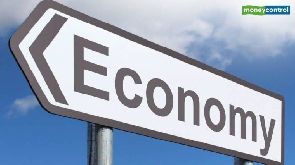At the opening ceremony of the 2023 Africa CEO Forum held in Abidjan, key policy chiefs emphasised the importance of balanced public-private partnerships (PPPs) to achieve economic transformation in African nations, including Ghana.
Under the theme ‘From 300 to 3,000: how to deliver the next generation of African champions,’ the forum focused on strategies to accelerate regional economic integration and bridge the infrastructure gap, currently estimated at a staggering US$100 billion annually.
Managing Director at the International Finance Corporation (IFC), Makhtar Diop, led the charge for the widespread adoption of PPPs, which are not lopsided, to fill the infrastructure gap and promote economic growth.
Diop highlighted the advantages of the PPP model, which not only leverages financial resources but also taps into the innovation and expertise of the private sector.
“Indeed, the PPP model is proving to be a preferred solution, given the reduction in budgetary leeway in this period of crisis."
“Although there is a real political will in this direction, it is important to note that the number of PPPs concluded, to date, is still largely insufficient. We are determined to sit down with our partners to deploy PPPs. This model makes it possible to leverage, not only financial resources, but also private sector innovation and expertise. That is why we have redoubled our efforts over the past year and increased our commitments by US$36 billion,” he said, adding that more than $11 billion has been invested exclusively on the continent.
Moreover, the IFC has intensified efforts to counter the effects of climate change, with nearly half of its equity investments dedicated to climate-related initiatives, surpassing the original target of 35 percent.
Recognising the detrimental impact of the current crises on international trade financing, the IFC has also focused on short-term trade finance to mitigate the consequences, Mr. Diop added.
Agro-future
Amidst the multiple challenges confronting the continent, policy leaders urged governments on the continent to identify promising sectors and avenues for future economic growth.
The IFC head specifically cited the agro-food and agro-industrial sectors as having enormous potential for growth, if adequate funding, appropriate policies and enhanced efficiency are implemented.
He emphasised the need for collaborative action from development partners to stimulate the creation of sustainable and globally competitive agricultural value chains.
This comes as a recently released McKinsey and Company report suggested that if African agriculture could match the growth witnessed by India from 1980 to 1990, the sector could contribute an additional US$200 billion to the African economy by 2030, surpassing current expectations by some US$40 billion.
Other policymakers stated that PPPs are non-negotiable as countries on the continent are vying to play larger roles in global value chains.
Consequently, Morocco’s Head of Government, Aziz Akhannouch, said his country has signed a series of new investment charters, as he stressed that national economic sovereignty is not a synonym for autarky.
Côte d’Ivoire’s Prime Minister, Patrick Achi, touted engagements with leaders from the United States and China, aiming to attract foreign investment in the post-COVID-19 era.
Both countries seek to strengthen their economic sovereignty through subsidies for local industrial production, mobilisation of domestic savings, and improvements in private sector credit.
The President of the Africa CEO Forum and CEO of Jeune Afrique Media Group, Amir Ben Yahmed, stressed the importance of uniting African businesses to advance the interests of the continent.
He emphasised the need to increase the number of African ‘champions’ – companies with an annual turnover of more than US$1 billion – from the current 300 to 3,000 in order to transform the continent and assert Africa’s pride and sovereignty on the international stage.
“From 300 champions, today, we believe that this number should be increased to 3,000, to truly transform the continent. Giving voice to a proud and sovereign Africa on the international scene, through the creation of public-private synergies, is once again at the heart of our mission,” he said.
Currently, there are less than 400 African-owned businesses with annual turnovers of US$1 billion. This pales in comparison with their peers in Europe and Asia.
However, it is projected that by 2030, Africa’s leading companies, many of which have shown remarkable resilience over recent years, could increase their collective annual revenues of US$1 trillion by more than US$550 billion by accessing new markets and increasing productivity.
Business News of Wednesday, 7 June 2023
Source: thebftonline.com













